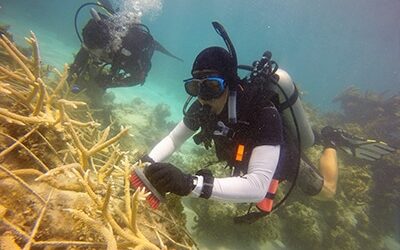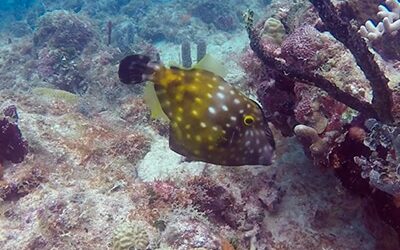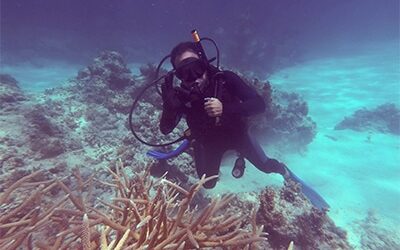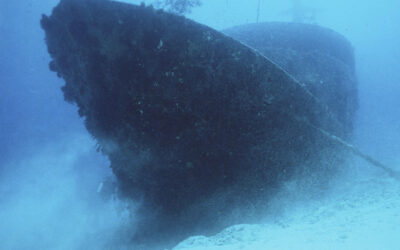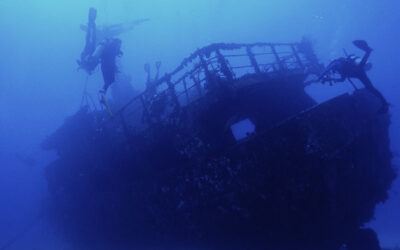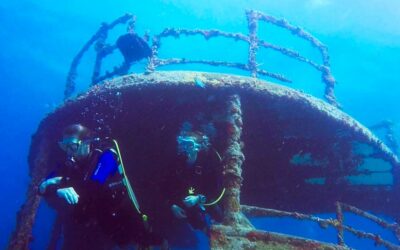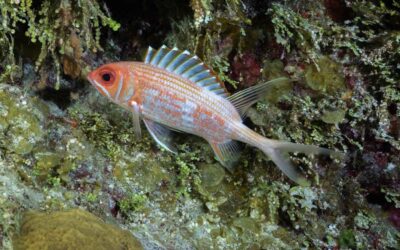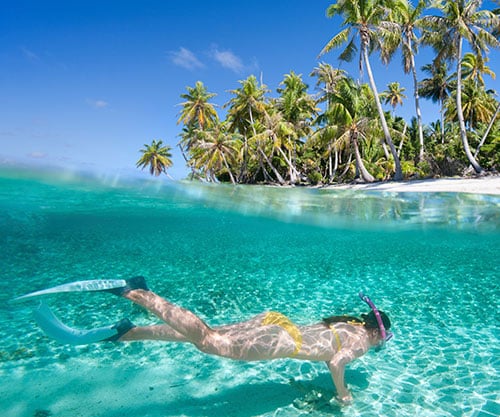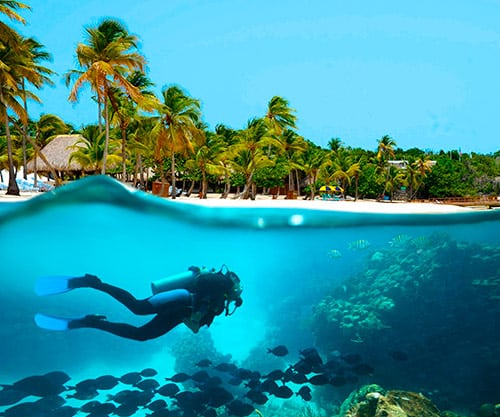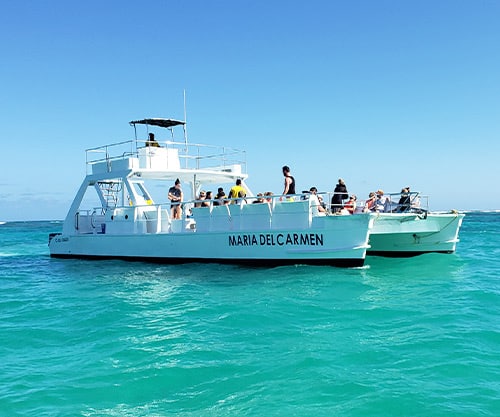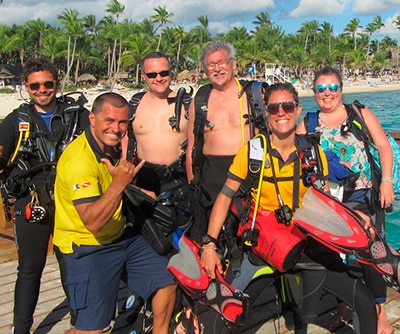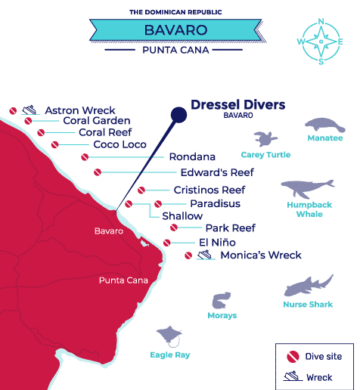Reef & Wreck Diving Excursion &
Safari Tours with Dressel Divers
Change the scenery with our reef & wreck diving excursion! Wreck enthusiasts will love this excursion! Join us for three memorable dives on the Southern side of the Dominican Republic consisting of one coral nursery dive and two Caribbean wreck dives.
As a first morning dive, we visit Coco Reef, a coral nursery dive. Our coral nursery in Bayahibe, is ready to start welcoming guests again! We have been working alongside IBEROSTAR Hotels & Resorts, Wave Of Change and FUNDEMAR to care for 1000+ fragments of coral, as part of our reef restoration strategy. Enjoy scuba diving at Coco Reef with this coral nursery and discover more about this amazing project! A unique adventure in an incomparable setting.
Second, we will do an afternoon two-tank starting with the “Saint George” wreck, undoubtedly one of the best dives in the country, for lovers of undersea adventure, followed by the “Atlantic Princess” a second wreck. Our guides will show you all their mysteries and amazing marine life.
The excursion breakfast and lunch will take place in an Iberostar Hacienda Dominicus poolside restaurant along the calm tropical shoreline, where we will be able to share our dive expectations and experiences of that day or any other that our diver friends want to share. We will see when we feel like going back to Bavaro with the bus. Don’t you agree?
Safari Reef & Wreck Diving Excursion: a tour to dream about!
St George Wreck Dive
St. George and Atlantic Princess are probably the best wreck dives in The Dominican Republic. These are the reasons.
St George wreck diving is exciting because:
1. the ship is in one piece;
2. many areas where penetration is allowed;
3. it is an incredible artificial coral reef full of life.
St George is an impressive looking 73 m / 240 ft long cargo ship.
Surrounded by schools of sergeant major fish and blue-chromis, its structure has plenty of camouflaged critters, moray eels, shrimp, crabs, and sea horses.
St George wreck diving maximum depth is 40 meters / 130 feet.
The Atlantic Princess wreck dive is worth it because:
1. it is a pleasant second tank dive,
2. it is an easily accessible wreck,
3. it can accommodate all diving levels.
It is an old passenger liner ship 99 ft / 30 m long. Although this is a wreck dive with no penetration due to the effects of a storm, it is still a delightful experience. Diving there, you will admire the schools of fish and shoals of purple wrasse swirling around it.
There are frequent sightings of lobster, nudibranch, and frogfish as well. Atlantic Princess wreck diving is 12m /39 feet deep.
Coco Reef (Coral nursery) dive
A combined Caribbean reef and Coral Nursery experience: The adventure of a fun & ecology-spirited coral nursery visit and dive In Bayahibe! There, together with Fundemar, a nursery was created to regenerate, above all, two species of coral that need our help for their survival.
There, they are bred, they reproduce and when they have the necessary maturity, they are transplanted in their natural habitat at Coco Reef to repopulate the area. We are in debt with these species whose number has decreased exponentially in the last years. The great coral reefs are subject to constant stress putting in danger their subsistence and therefore that of all the fauna and flora that lives around them.
With our volunteers, we have done something great. They have put their grain of sand to keep alive species that take up to 20 years to reach maturity. Dressel Divers GO Green project, apart from helping the environment, goes further: we want to share and transmit the great feeling we feel when we are useful beyond our own needs.
Therefore we offer this wonderful experience as part of the wreck diving excursion. This dive will be a great eco experience. You will learn a lot of things about coral conservation and the reef ecosystem. This experience will want to make you feel even more actively involved in the protection of the ocean.
Available From Our Punta Cana Dive Center
More Excursions in this Category
Our tours welcome everyone!
WHEREVER YOU STAY you can join the Dressel Divers Reef & Wreck Safari Scuba Diving Tour!
STAY AT ALMOST ANY RESORT and board our Safari Reef & Wreck Excursion transport right from its reception or other agreed pick-up point, should the former not be possible!
• With exceptions, transfer directly from your hotel or agreed pick-up point to our Bayahibe Dive Center (please consult).
• Beverages, breakfast, and a buffet lunch at the Iberostar Hacienda Dominicus Hotel where our dive center is located.
• A first coral nursery morning dive on the fantastic Coco Reef, followed by an afternoon two-tank wreck dive at St George and Atlantic Princess leaving by boat from our dive center pier.
• Professional dive guide, dive boat, and crew for 3 dives. NOTE: These 3 dives are purchased separately or taken from a package (rental scuba equipment available)
Contact us for Prices
$ = All prices are in USD.
Practical information
Incredible diving
all year-round
Average visibility:
+115 feet (+35 meters)
Coldest water temp.:
78.8 ºF (26 ºC)
Warmest water temp.:
87.8ºF (31 ºC)
Wetsuits (full) rentals:
0.18 inch / 3mm
Aluminum Tanks:
80 cubic feet (12 liters)
Full Tank:
+/- 3,000 psi (200 bar)
INT Connection:
DIN Adapters available



